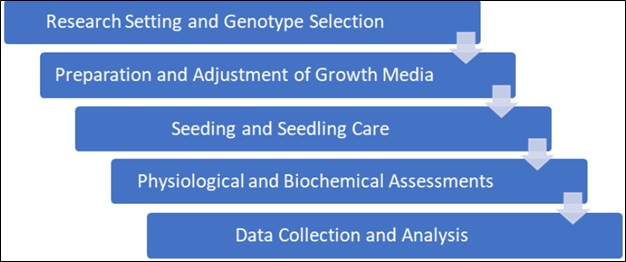Assessing Salt Stress Responses in Cotton Genotypes: Insights for Breeding Initiatives
Keywords:
Salinity, Genotypes, Physiological Assessments, Cotton, Potassium.Abstract
The growth and production of cotton on a global scale are significantly threatened by salinity stress. This study investigates the salt stress responses of eight cotton genotypes, focusing on their physiological and biochemical characteristics under varying salinity levels. Conducted at the Department of Plant Breeding and Genetics, University of Punjab, Lahore, the research employed a triple completely randomized design with two salinity levels and a control group. Genotypes were selected based on production potential and adaptability to Pakistan's cotton-growing regions. Physiological assessments included sodium (Na+) and potassium (K+) ion concentrations, while biochemical parameters encompassed antioxidant enzyme activities, soluble protein levels, and proline content. Statistical analysis revealed significant variations among genotypes and salinity levels, indicating genetic diversity and diverse reactions to salt stress. Genotypes displayed altered growth metrics, ion homeostasis, and K+/Na+ ratios under salt stress, highlighting their sensitivity and potential breeding value. However, it is crucial to thoroughly examine all associations between genotype and environment. The research listed above provide significant insights into the responses of cotton seedlings to salt stress.


















